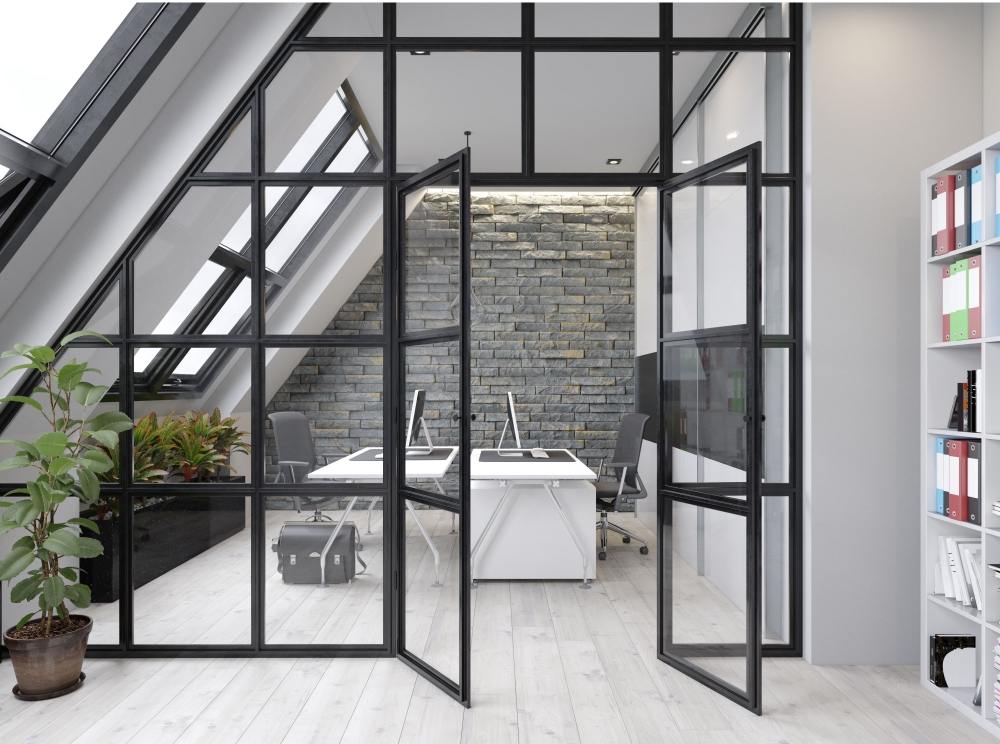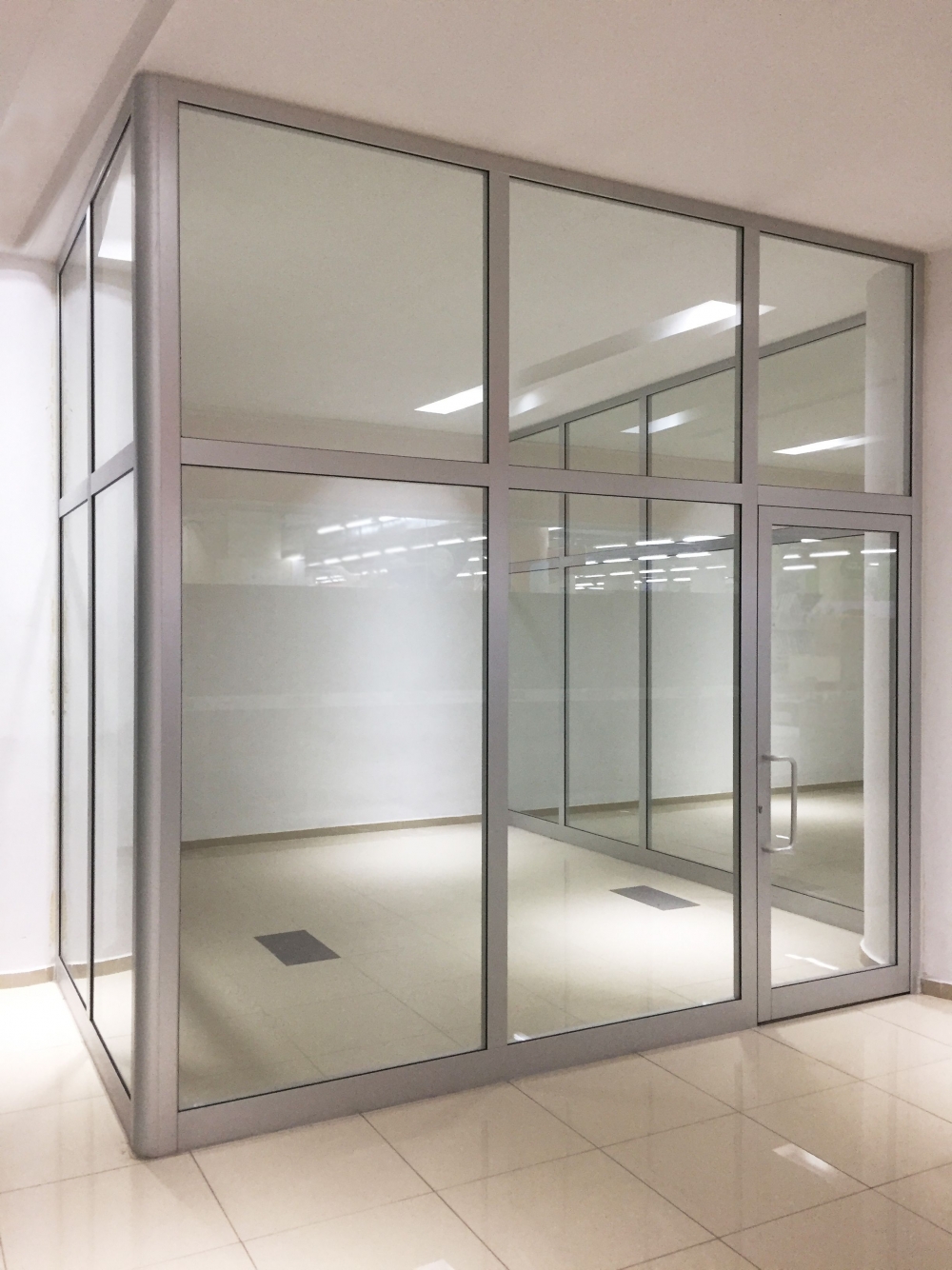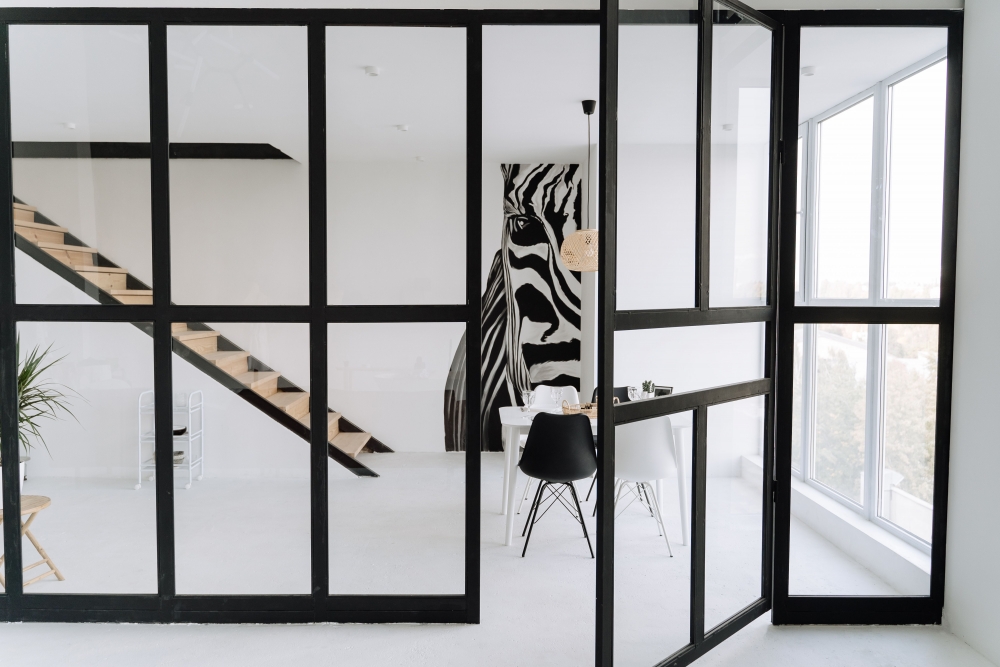
Residential service
Our services of Glass Walls installation and repair
It is important to work with an experienced professional to install your glass partitions, as this will ensure that the process is done correctly and that the glass partitions are safe, stable and functional.
Receive a quote

The Benefits of a Glass Wall
Glass walls can offer many benefits in terms of functionality, design and well-being in a space. Some of the most common benefits of glass walls include:
- Improved natural light: Glass walls allow natural light to flow through a space. This can improve ambiance, increase productivity and help reduce reliance on artificial lighting, which can help reduce energy costs.
- Creating private work areas: Glass walls can be used to create private work areas or meeting spaces in an office or other work environment. This can help reduce distractions and improve privacy.
- Noise Reduction: Glass walls can also help reduce noise in a space. Glass walls can be equipped with special glazing to reduce noise transmission, creating a quieter, more comfortable work environment.
- Flexibility and Modularity: Glass walls are often designed to be removable or modular, meaning they can be rearranged and reconfigured to meet the changing needs of a space.
- Improved overall aesthetics: Glass walls can add a modern and elegant touch to a space. Frames and panels can be customized with different colors and finishes to match the overall design of the space.
- Space savings: Glass walls can be thinner than traditional walls, saving space and maximizing the use of available space.
In summary, glass walls offer many practical and aesthetic benefits to a space, such as improving natural light, creating private work areas, reducing noise, providing flexibility and improving overall aesthetics.


Types of Glass Walls
There are several types of glass walls that can be used to meet the specific needs of a space. Here are some of the most common types of glass walls:
- Fixed glass walls: Fixed glass walls are designed to be permanently installed and cannot be easily moved. They can be used to divide a large space into multiple areas or to create individual offices.
- Movable Glass Walls: Movable glass walls are designed to be easily moved and rearranged to accommodate the changing needs of a space. They can be used to temporarily divide a space into multiple areas or to create temporary meeting rooms.
- Sliding Glass Walls: Sliding glass walls are designed to slide on tracks, allowing them to be opened or closed as a space needs. They can be used to create a flexible separation between two areas or to divide a larger space into multiple areas.
- Folding glass walls: Folding glass walls are designed to be folded to fit the needs of a space. They can be used to create a flexible separation between two areas or to divide a larger space into multiple areas.
- Semi-Permanent Glass Walls: Semi-permanent glass walls are designed to be installed for a limited time, but can be easily removed and reinstalled elsewhere. They can be used to create temporary areas in a space, such as meeting rooms or temporary offices.
By choosing the right type of glass wall for your space, you can maximize its functionality and efficiency while enhancing its appearance.
Our glass wall installation process
The glass wall installation process can vary depending on the type of glass wall you choose and the requirements of your space. However, here is a general overview of the glass wall installation process:
- Design and Planning: The glass wall installation process begins with a consultation with a professional to discuss your needs and goals for your space. The professional can take measurements and produce plans to help you visualize what the glass walls will look like in your space.
- Fabrication: Once the plans are finalized, the glass walls will be fabricated to the specifications of your space. This may include cutting and finishing the glass panels, fabricating the frames and installing the hardware.
- Frame Installation: Glass wall frames will be installed first. Frames can be aluminum, steel or wood depending on the design choice. Frames can be floor, ceiling or wall mounted depending on design.
- Glass panel installation: The glass panels will then be installed in the frames. Panels can be tempered, laminated, laminated or tinted glass as required.
- Hardware Installation: Hardware such as handles, hinges and locks will be installed to allow for the opening and closing of glass wall doors and windows.
- Cleaning and Finishing: Once the installation is complete, the space will be cleaned and finished to ensure that the glass walls are integrated into the overall aesthetic of the space.
It is important to work with an experienced professional to install your glass walls, as this will ensure that the process is done correctly and that the glass walls are safe, stable and functional.
Our Services
-
Thermal pane replacement
-
Parts, mechanisms and weatherstripping service
-
Windows and doors caulking
-
Window defogging
-
Our RENEW program
-
Stained glass and door inserts
-
Manufacturing and installation of mosquito nets
-
Solarium maintenance and repair
-
Glass Handrail installation and repair
-
Curtain wall installation and repair
-
Shower glass panel Installation
-
Mirror Installation
-
Glass wall installation and repair